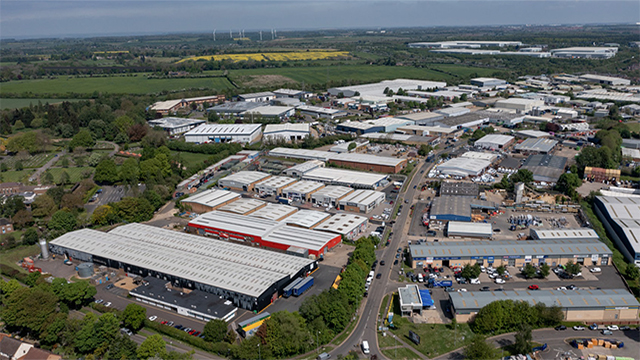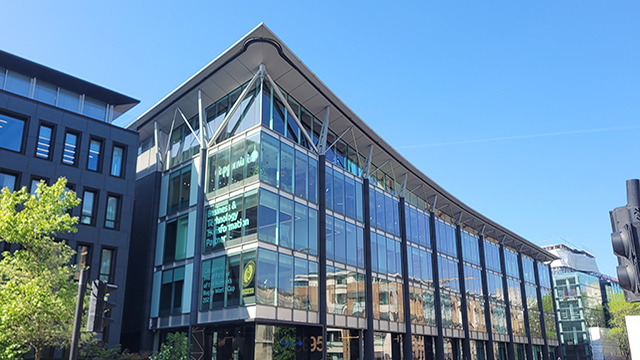How London’s fintech ecosystem works
COMMENT: London’s talent pool, regulatory climate and access to funding are familiar characters in the story of the capital’s hugely successful fintech sector. Yet among these factors, the role of London’s geography, built environment and real estate market is often overlooked, not just in contributing to the evolution of the sector so far, but in shaping its future growth and evolution, writes Kat Hanna, associate in Cushman & Wakefield’s Insight team.
As recently as 10 years ago, financial services and technology occupiers remained relatively distinct, both in terms of geography and design.
More recently, a process of osmosis has emerged in which the City – and to an extent Canary Wharf – are embracing the types of tenants associated with the City fringe and other tech locations.
COMMENT: London’s talent pool, regulatory climate and access to funding are familiar characters in the story of the capital’s hugely successful fintech sector. Yet among these factors, the role of London’s geography, built environment and real estate market is often overlooked, not just in contributing to the evolution of the sector so far, but in shaping its future growth and evolution, writes Kat Hanna, associate in Cushman & Wakefield’s Insight team.
[caption id="attachment_862835" align="alignright" width="150"] Kat Hanna[/caption]
As recently as 10 years ago, financial services and technology occupiers remained relatively distinct, both in terms of geography and design.
More recently, a process of osmosis has emerged in which the City – and to an extent Canary Wharf – are embracing the types of tenants associated with the City fringe and other tech locations.
This blurring of traditional financial services and technology locations also extends to the diversification of amenities and cultural offers.
Broadgate Estate, for example, is diversifying its food and beverage offer in a conscious effort not only to appeal to a broader range of tenants but to the increasing number of financial service employees who are as likely to work as technologists as they are bankers or managers.
Similarly, the City fringe increasingly attracts occupiers more associated with the traditional CBD, driven in part by incumbent strategies to acquire fintech credentials as much by association as by acquisition.
A review of London’s fintech ecosystem suggests that, notable exemptions aside, it has emerged as one of pragmatic partnership rather than a clash of cultures.
The proximity of financial services locations to established tech locations, and increasing permeability between the two, means a number of opportunities for accessing the fintech ecosystem with the view to forming partnerships or just keeping an eye on the competition.
Incumbents may open corporate office doors to start-ups, offering a possible solution to grey space or mitigation of headcount reduction.
Co-working space plays an important role for start-ups and scale-ups alike. Of the 29 London-based fintech companies featured in the 2017 Fintech50, half are located either in co-working spaces or dedicated incubators and accelerators
Another is to embed corporate innovation teams in co-working hubs in strategic locations – a sort of Trojan horse for tech talent.
Proximity matters to start-ups as well as incumbents, particularly for those opting for B2C over B2B.
Despite operating within the confines of a defined regulatory environment, the fintech sector can move at pace.
Acquisition of banking licences and/or major fundraising success tends to precede relatively rapid headcount growth, as seen in companies such as Monzo and Revolut.
Increasingly, not all this headcount growth is located in London, with companies looking to secondary tech hubs for certain types of talent, while retaining HQs in London.
Co-working space plays an important role for start-ups and scale-ups alike.
Of the 29 London-based fintech companies featured in the 2017 Fintech50, half are located either in co-working spaces, run by operators including WeWork and The Office Group, or dedicated incubators and accelerators.
London’s fintech ecosystem relies heavily on talent, investment, and regulation.
As a result, occupiers will continue to deploy a range of location and accommodation strategies to navigate the trends of automation, digitisation and regulation.
The combination of evolving geographies, proximity and permeability of commercial real estate, and space to start and grow will prove instrumental in securing fintech’s future growth.
Click here to read Cushman & Wakefield’s report on the evolution of London’s fintech sector.










